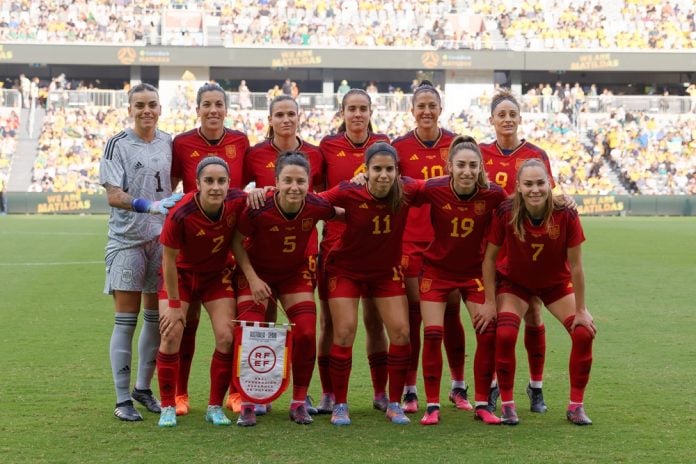The Spanish women’s football team has reached an agreement with the Spanish Football Federation (RFEF) to end its boycott of upcoming games.
Both parties held a meeting that lasted more than seven hours – ending at 3:00am GMT time on 20 September – which resulted in RFEF deciding to make “immediate and profound changes” to its board members when it pertains to women’s football in the country.
Spanish national team members, RFEF officials, the women’s player union FUTPRO and the National Sports Council (CSD) all attended the meeting in Valencia.
“A joint commission will be created between RFEF, CSD and players to follow up on the agreements, which will be signed tomorrow,” stated CSD President Victor Francos.
“The players have expressed their concern about the need for profound changes in the RFEF, which has committed to making these changes immediately.”
As part of the deal, six-to-nine RFEF senior officials will be removed from their positions,beginning the overhaul of the Spanish footballing authority after its President, Luis Rubiales, resigned the week prior. Secretary General Andrew Camps was also relieved of his duties in the process.
Rubiales sparked outcry over his actions during Spain’s World Cup triumph over England last August, as he kissed player Jenni Hermoso on the lips during the trophy ceremony, in what the Spanish midfielder claims was non-consensual.
Former Head Coach Jorge Vilda was also dismissed after a lengthy battle between himself and the players, with the latter dissatisfied with the coach’s behaviour towards them. Vilda was ultimately replaced by Montse Tomé, Spain women’s first-ever female Head Coach.
The Spanish women’s side boycotted upcoming UEFA Nations League games against Sweden and Switzerland over disputes of their treatment by RFEF amongst a litany of other concerns.
With the boycott ended and some matters seemingly being resolved to an extent, RFEF President Pedro Rocha said the meeting was a “symbolic step” in wanting a “change of concept, and the recognition that football is football, no matter who plays it”.
























